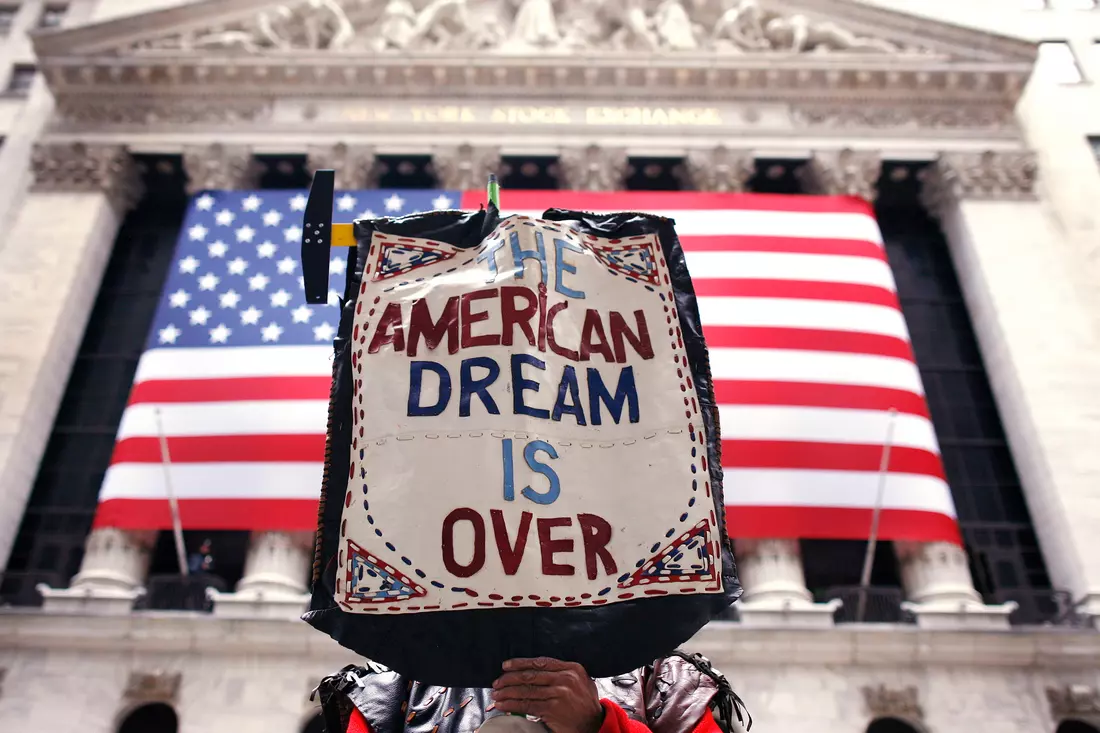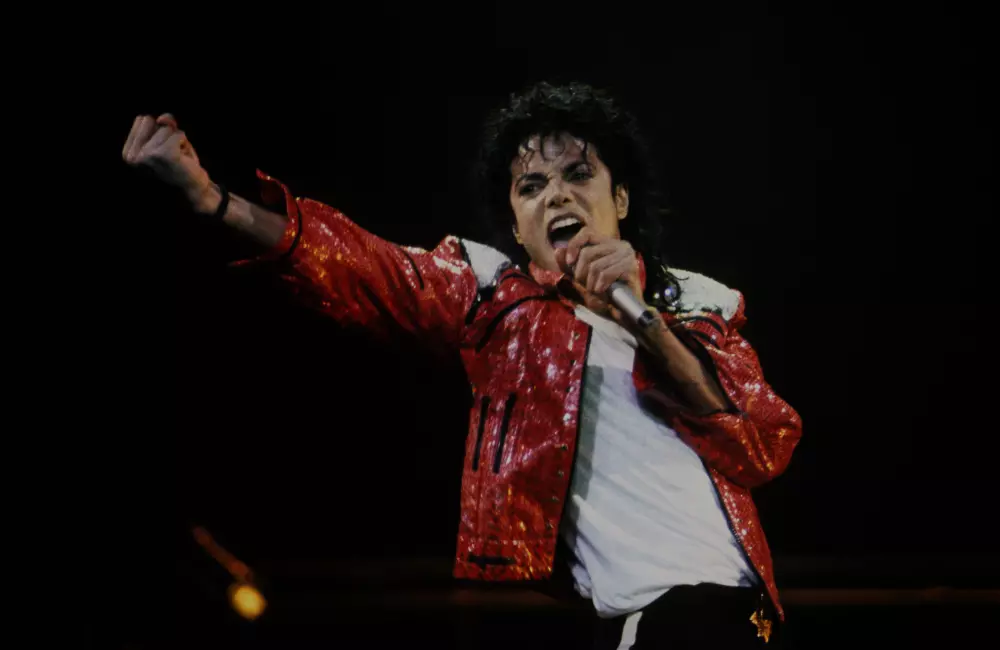Martin Luther King is not just a name in history books but a symbol of courage, devotion to the ideals of freedom, and human rights. He represents an era of change when thousands rose to fight against injustice. His philosophy of nonviolent resistance inspired millions, and his iconic speech, "I Have a Dream" became an unforgettable part of world history.
But King’s journey was far from easy. He lived in a time filled with tension, fear, and hope. Facing discrimination, threats, and arrests, he never backed down. Instead, he became the driving force of the civil rights movement.
This article explores his childhood, early activism, major victories, and the tragic yet heroic conclusion of his journey. We will examine how his ideas transformed America and why his legacy remains relevant today.
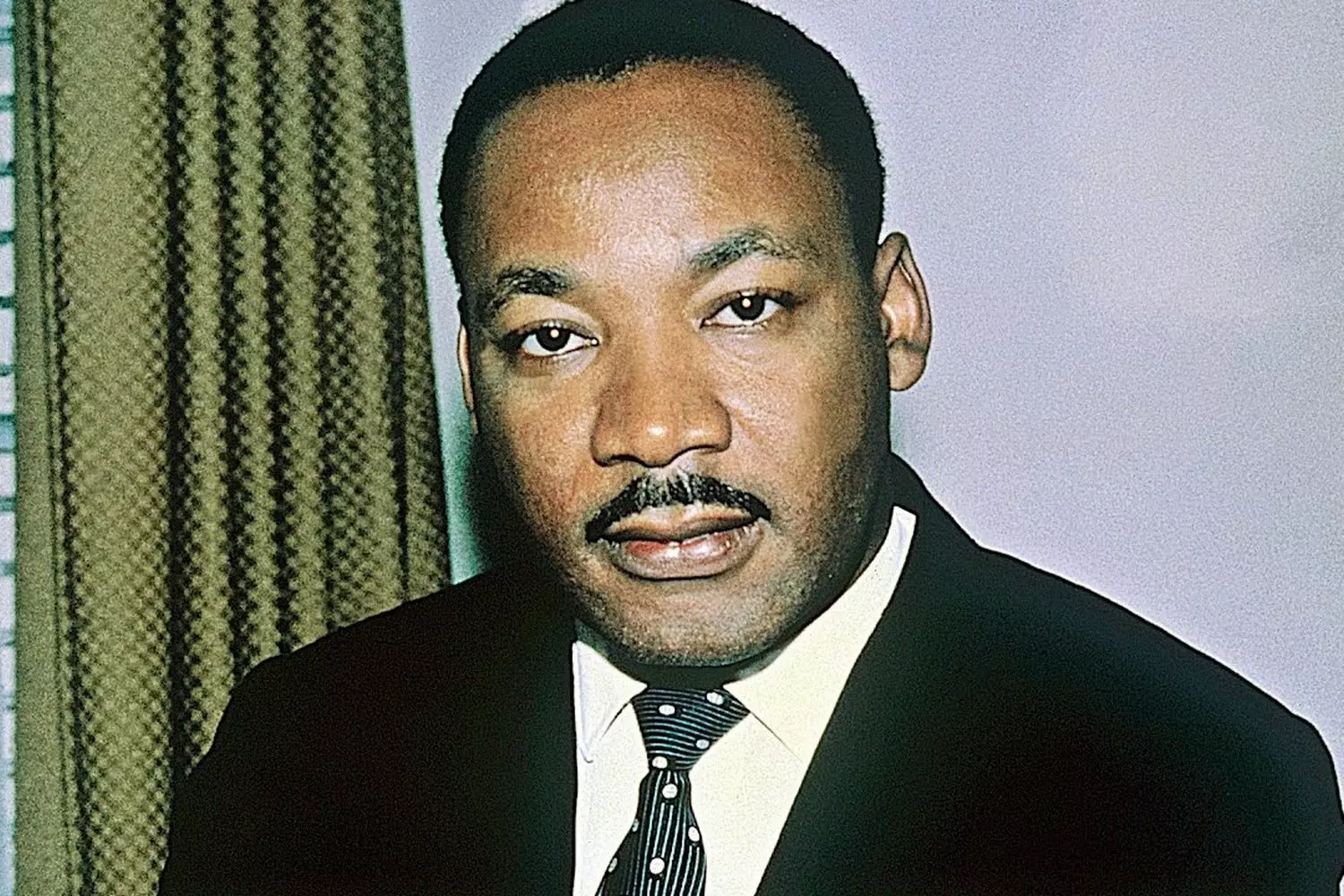
Childhood and the Making of a Leader
Martin Luther King Jr. was born on January 15, 1929, in Atlanta, Georgia, into a family where faith and education played a central role. His father, Martin Luther King Sr., was a pastor of an influential Baptist church, and his mother, Alberta Williams King, was a teacher. From an early age, he was surrounded by an atmosphere of spirituality, social responsibility, and a drive for change.
As the youngest of three children, Martin grew up witnessing his father’s fight against injustice. King Sr. actively opposed racial segregation and inspired his son to uphold the same ideals. Despite a relatively comfortable upbringing, young Martin quickly realized that society divided people based on skin color, denying Black Americans basic rights.
His school years were challenging — not because of academics, where he excelled, but due to constant encounters with racial discrimination. Yet, his thirst for knowledge and desire to change the world were stronger. At just 15, he enrolled at Morehouse College in Atlanta to study sociology. It was there that he fully embraced his calling to serve others. After earning his degree, he continued his education at Crozer Theological Seminary in Pennsylvania and later pursued a doctorate in systematic theology at Boston University.
During this period, King was deeply influenced by the works of Mahatma Gandhi. The principles of nonviolent resistance profoundly shaped his worldview, reinforcing his belief that true equality could only be achieved through peaceful yet powerful action.
What is the American Dream: Myth or Reality?
The Beginning of the Struggle
King’s first major act of resistance came in 1955 when Rosa Parks, an African American woman, refused to give up her seat on a bus to a white passenger. This act of defiance sparked the Montgomery Bus Boycott.
- King led the protest, which lasted 381 days.
- Eventually, the U.S. Supreme Court ruled that segregation on public buses was unconstitutional.
- This victory solidified King’s leadership in the civil rights movement.
From that moment, he became the face of the fight for equality.
The Southern Christian Leadership Conference
Following the success of the boycott, King recognized the need for a strong organization to unify the efforts of the Black community. In 1957, he and other activists founded the Southern Christian Leadership Conference (SCLC), which became the backbone of the civil rights movement.
- The primary goal of the SCLC was to achieve equality through peaceful means.
- The organization organized mass protests, marches, and acts of civil disobedience.
- King, as the SCLC’s president, led the movement with a focus on moral and spiritual principles.
The SCLC played a crucial role in organizing boycotts, marches, and protests against racial discrimination, including the legendary March on Washington.
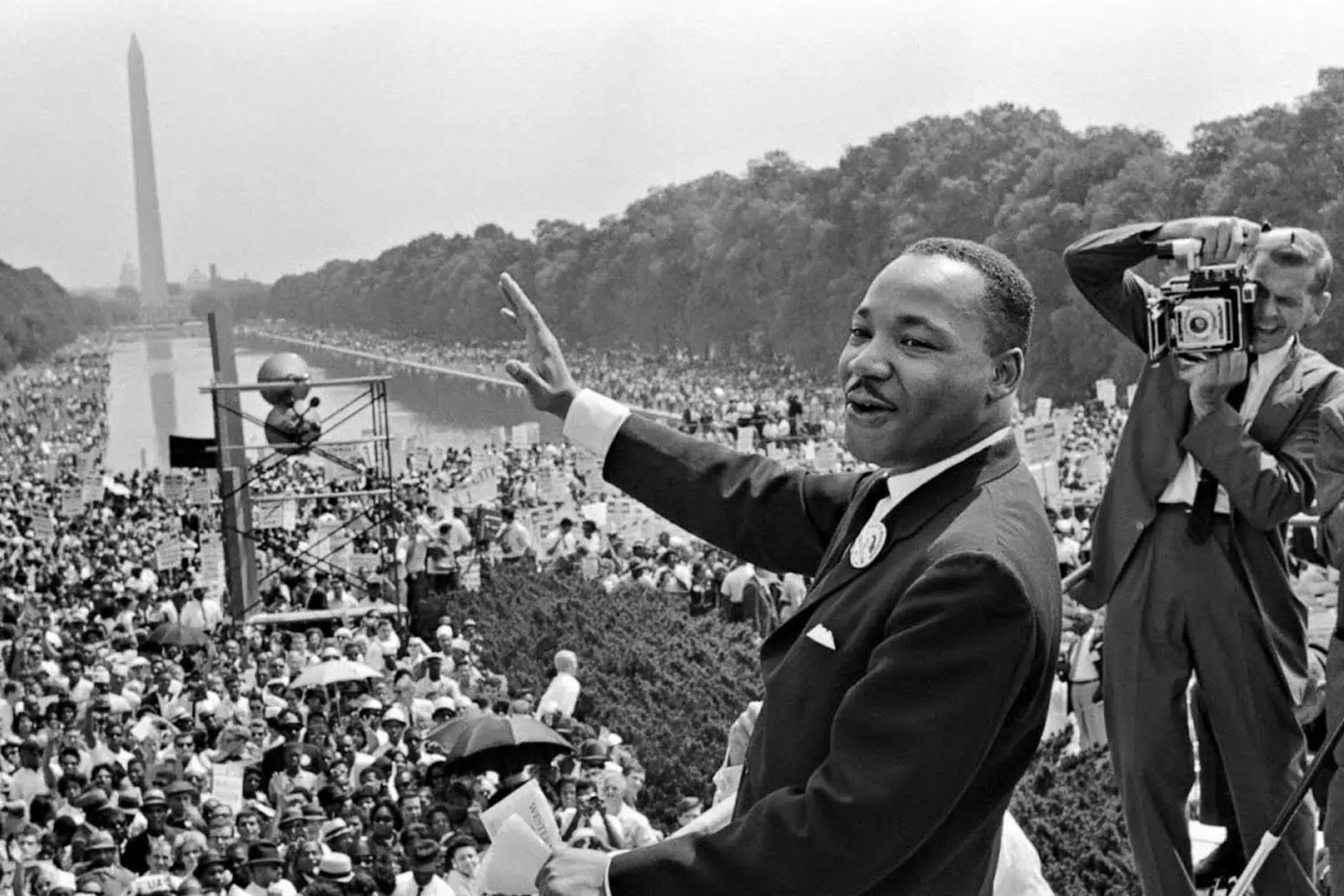
Principles of Nonviolent Resistance
King believed that nonviolence was not just a strategy but a powerful tool for social transformation. Drawing inspiration from Gandhi’s teachings and Christian love, he argued that only peaceful methods could dismantle oppression without inciting more violence.
Key methods of nonviolent resistance included:
- Marches and Peaceful Demonstrations
These public gatherings raised awareness about racial discrimination and showcased the unity of the protesters. - Boycotts
The refusal of Black citizens to use segregated public services caused economic losses for businesses, pressuring authorities to repeal discriminatory laws. - Civil Disobedience
Deliberately breaking unjust laws and willingly accepting punishment highlighted the absurdity of segregation. - Sit-in Protests
Peaceful sit-ins at segregated establishments forced businesses and the government to confront human rights violations.
King emphasized that nonviolent resistance required immense discipline and courage. His followers had to remain peaceful even in the face of brutal repression. He firmly believed that love and justice could overcome hate and aggression, and that peaceful struggle would not only achieve equality but also foster a society built on mutual respect and cooperation.
King’s Political Views
Martin Luther King was not only a civil rights leader but also a vocal political thinker. He understood that political change was crucial in the fight for equality and justice. He often stressed that the struggle for Black rights could not be limited to social issues alone. King believed that real political progress required a shift in both policy and public consciousness, especially among those in power.
King saw the government as a tool for meaningful change. He criticized racial segregation, economic inequality, and systemic injustice in American politics. However, his approach was peaceful rather than confrontational. He advocated for political action based on nonviolence and humanism, rejecting violent or coercive methods. To him, politics should serve society rather than the interests of select groups.
Who Did King Support?
- Although King championed change through peaceful protest, he was not strictly aligned with any political party. However, his views increasingly aligned with progressive movements.
- He supported President Lyndon B. Johnson’s administration, especially its initiatives to pass civil rights laws. The Civil Rights Act of 1964 and the Voting Rights Act of 1965, both signed by Johnson, aligned with King’s lifelong goals.
- Despite this, King did not blindly endorse all government decisions. He strongly opposed the Vietnam War, arguing that America’s involvement was unjust and diverted resources from the fight against racism and poverty at home. In 1967, he declared the war morally wrong and criticized U.S. foreign policy as imperialistic.
Support for Reparations
King believed that civil rights laws alone were insufficient to address economic disparities. He advocated for reparations for Black Americans as compensation for centuries of slavery, oppression, and discrimination. His vision of reparations extended beyond financial payments — it included equal access to education, employment, and social mobility.
King’s political activism was never just about confronting injustice; he sought to create a political system that genuinely served the people. His philosophy was both pragmatic and deeply humanistic, making him one of the most influential political figures in history.
King’s Relationship with Religion
Martin Luther King drew profound inspiration from his Christian faith, as seen in his sermons and public speeches. As a pastor, he used religious principles as the foundation of his civil rights activism. He often emphasized that the true strength in the fight for justice lay not in violence but in love and forgiveness.
- He believed that spiritual strength and moral values, central to Christianity, could be powerful tools against oppression and injustice.
- King saw his mission not just as a fight for civil rights but as a religious duty. He was convinced that humanity should strive for brotherhood, peace, and equality — core Christian teachings.
- For King, faith was not just a personal matter but the foundation of his vision for a just, peaceful, and equal society.
His belief in these values allowed him to inspire millions, uniting people in the pursuit of a cause that continues to shape the world today.
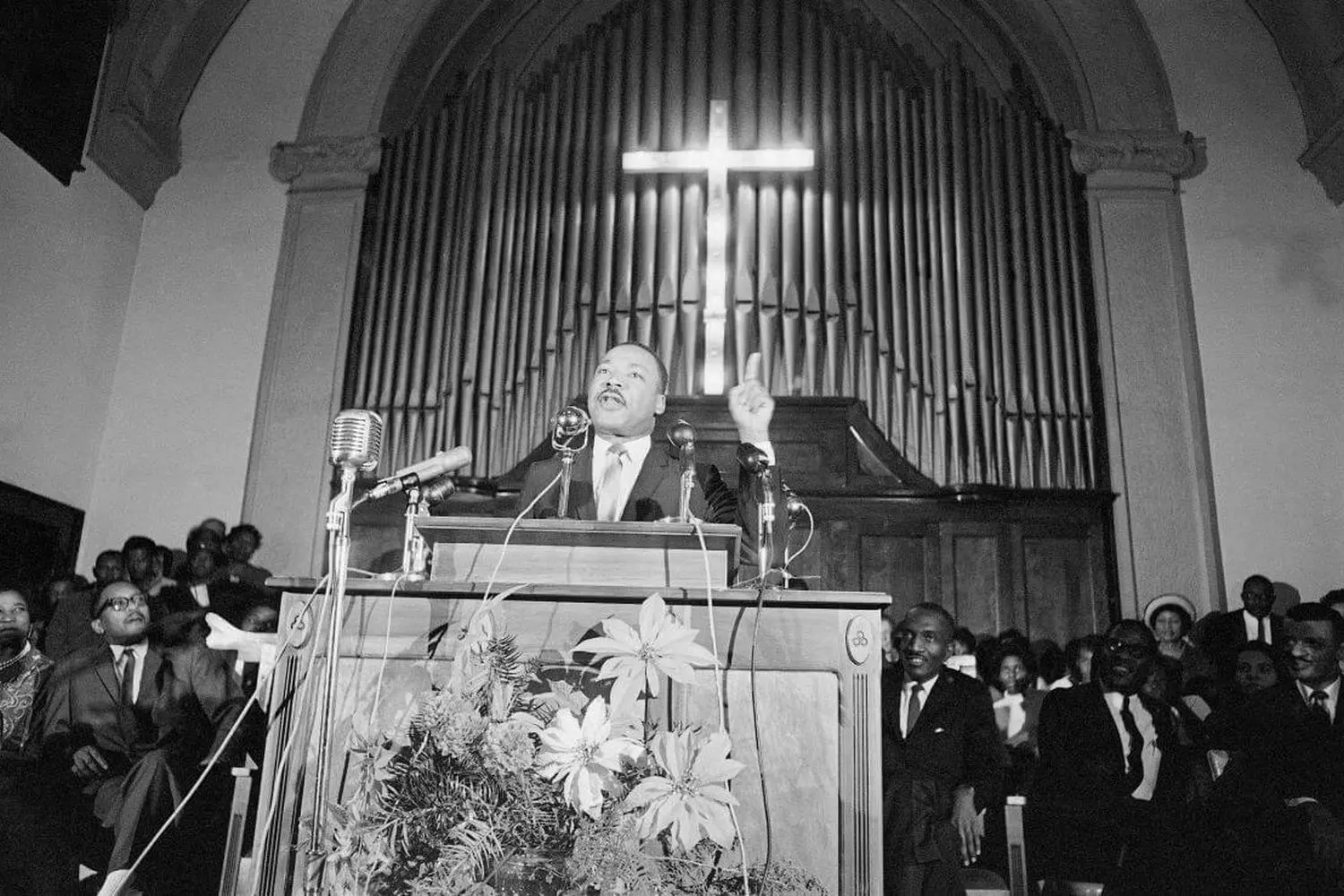
The Great March on Washington
In 1963, Martin Luther King Jr. organized one of the largest marches in U.S. history — the March on Washington for Jobs and Freedom. This event, which brought together over 250,000 people, was not only a demonstration of mass solidarity but also a significant political act.
- The march was a peaceful protest where participants demanded equality for Black Americans, better working conditions, and the fulfillment of the U.S. Constitution’s promise of equal rights for all citizens.
- It became a pivotal moment in the civil rights movement, drawing attention to the pressing issues of racial discrimination and economic inequality.
- During the march, King delivered his iconic “I Have a Dream” speech, which became a symbol of the fight for equality. This moment was a turning point in history, garnering widespread public support for the passage of the Civil Rights Act of 1964 and the Voting Rights Act of 1965, both of which dramatically changed the legal landscape for Black Americans.
The Iconic "I Have a Dream" Speech
Martin Luther King Jr.'s “I Have a Dream” speech, delivered on August 28, 1963, remains one of the most powerful and inspiring moments in the history of the civil rights movement.
- The most famous part of his speech envisions a future where his children would be judged not by the color of their skin but by the content of their character. This phrase became a symbol of hope and the pursuit of equality, calling for peace, tolerance, and justice.
- Importantly, the speech was not solely about race. It also addressed broader social issues, including economic inequality and workers' rights. King emphasized the need for peaceful resistance and unity among all people, regardless of their background or race.
- The "I Have a Dream" speech was not just a defining moment in the civil rights movement — it resonated with millions around the world and became a cornerstone of American history.
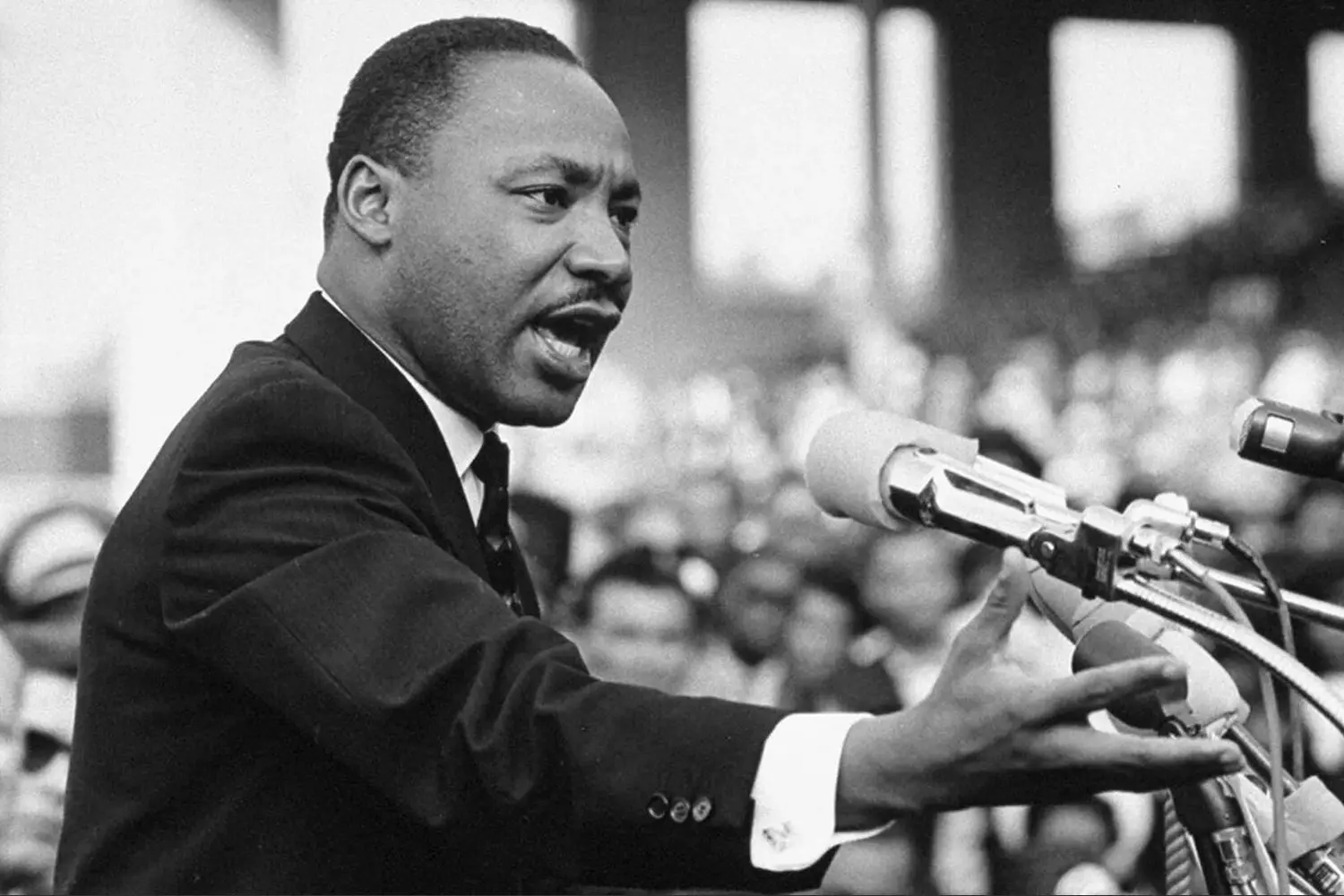
The Assassination of Martin Luther King Jr.
On April 4, 1968, Martin Luther King Jr. was assassinated in Memphis, Tennessee, while standing on the balcony of the Lorraine Motel. James Earl Ray was convicted of the murder, though he later recanted his confession. Many believe that more powerful forces, possibly even government agencies, were involved in the assassination.
His death sparked a wave of protests across the country. Thousands of people gathered in Atlanta for his funeral to pay their respects. He was laid to rest near the church where his father had preached.
King’s assassination shocked the world, leaving a profound sense of loss among those who supported his fight for civil rights. Yet, even in the face of this tragedy, his ideas and legacy lived on. He became a symbol of the struggle for peace, justice, and equality.
Today, despite his physical absence, his impact endures in the hearts of millions. In honor of his life and work, the U.S. celebrates Martin Luther King Jr. Day each year — a national holiday that serves as a reminder of the ongoing fight for a more just and equal society.
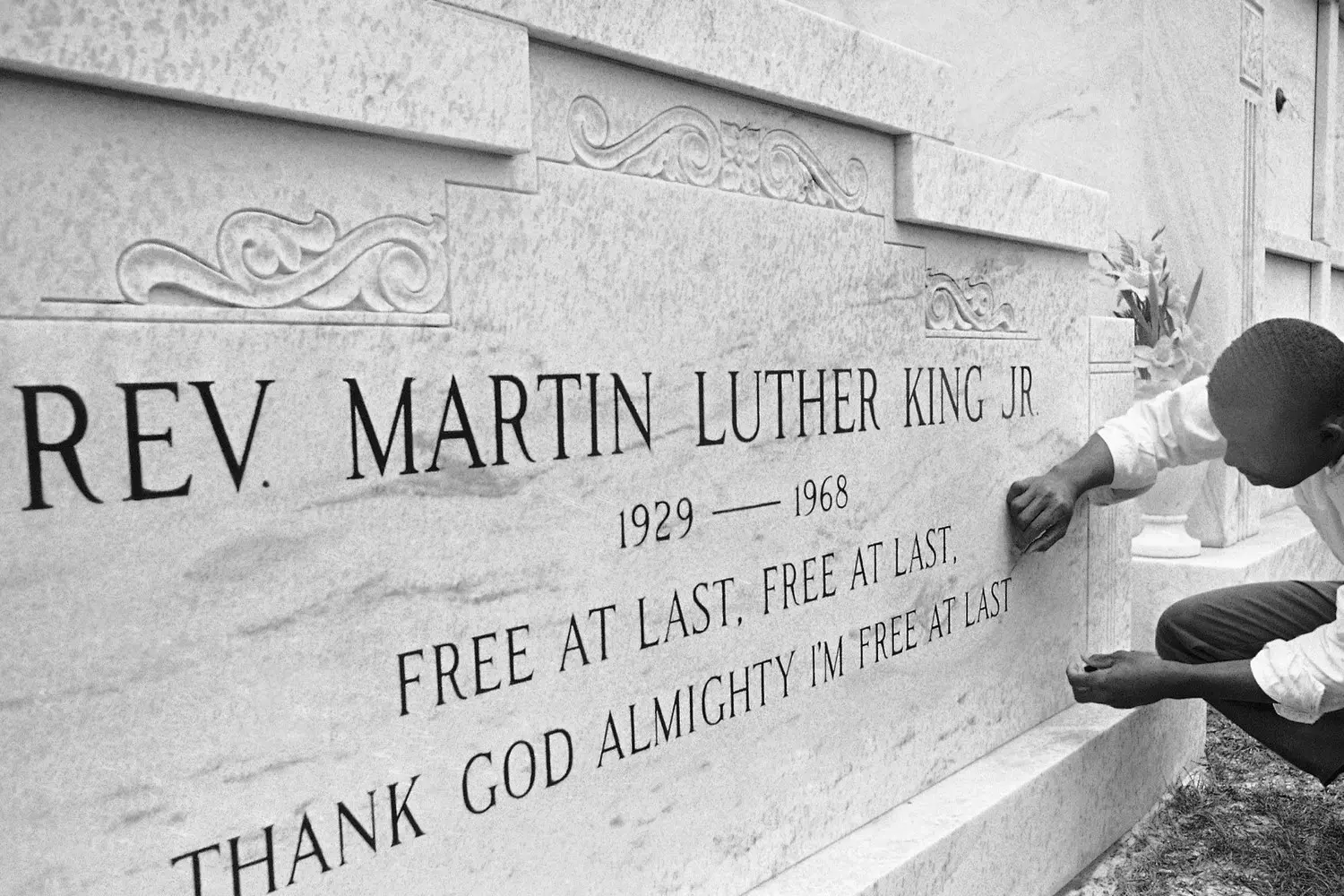
The Legacy of Martin Luther King Jr.: A Path to Equality, Justice, and Peace
Martin Luther King Jr.'s legacy remains as relevant today as ever. Though his life was tragically cut short at just 39 years old, his influence on American society and the world is still deeply felt. He was not only a key figure in the civil rights movement but also played a crucial role in shaping laws that ended racial discrimination and improved social and economic conditions for Black Americans.
Landmark Legislation and the Continued Civil Rights Movement
King’s assassination did not halt the civil rights movement; instead, it gave it new momentum. Two of the most significant legislative achievements of that era were the Civil Rights Act of 1964 and the Voting Rights Act of 1965 — both heavily influenced by King’s activism and the efforts of other civil rights leaders.
- The Civil Rights Act of 1964 banned discrimination based on race, religion, or national origin in public places, workplaces, and schools. This historic law significantly reduced racial segregation in the U.S.
- The Voting Rights Act of 1965 was a crucial step in securing political rights for Black Americans, ensuring their right to vote by eliminating literacy tests and other discriminatory practices used to suppress their participation in elections.
Posthumous Honors and Recognition
Following his death, Martin Luther King Jr. received numerous awards and honors, reflecting the immense impact of his work:
- In 1964, he became the youngest recipient of the Nobel Peace Prize for his dedication to nonviolent resistance and human rights. This award recognized his exceptional ability to fight for justice through peaceful means.
- Countless streets, schools, and even entire cities across America have been named in his honor.
- King’s influence extends beyond politics — he became a cultural icon, representing the fight for human rights. His "I Have a Dream" speech continues to inspire people worldwide, often quoted in political rallies, films, and music.
- His life and work have been depicted in numerous books, documentaries, and films, including the critically acclaimed 2014 movie "Selma", which portrayed his leadership in the voting rights movement. The film was praised for its historical accuracy and its impact on understanding the ongoing struggle for equality in America.
- Music inspired by King’s speeches and activism, particularly gospel and protest songs, became an integral part of the civil rights movement. Even today, artists, politicians, and activists draw inspiration from his words and actions.
King’s philosophy of nonviolent resistance continues to guide peaceful protests around the world. His teachings remain especially relevant in modern movements against racial injustice, such as Black Lives Matter, proving that his vision of a just society is still very much alive.
Martin Luther King is not just an icon of the human rights struggle; he is a symbol of hope and a testament to the fact that the world can be changed if you believe in justice and fight for it.Barack Obama
A Legacy That Lives On
Martin Luther King Jr.'s life was a testament to courage, resilience, and an unwavering love for humanity. He inspired millions and reshaped both America and the world. His philosophy of nonviolence and relentless pursuit of equality made him a symbol of peace and justice.
Would you like to explore the cultural and historical legacy of America? American Butler offers exclusive tours to sites connected to Martin Luther King Jr. Travel in comfort while immersing yourself in history!














